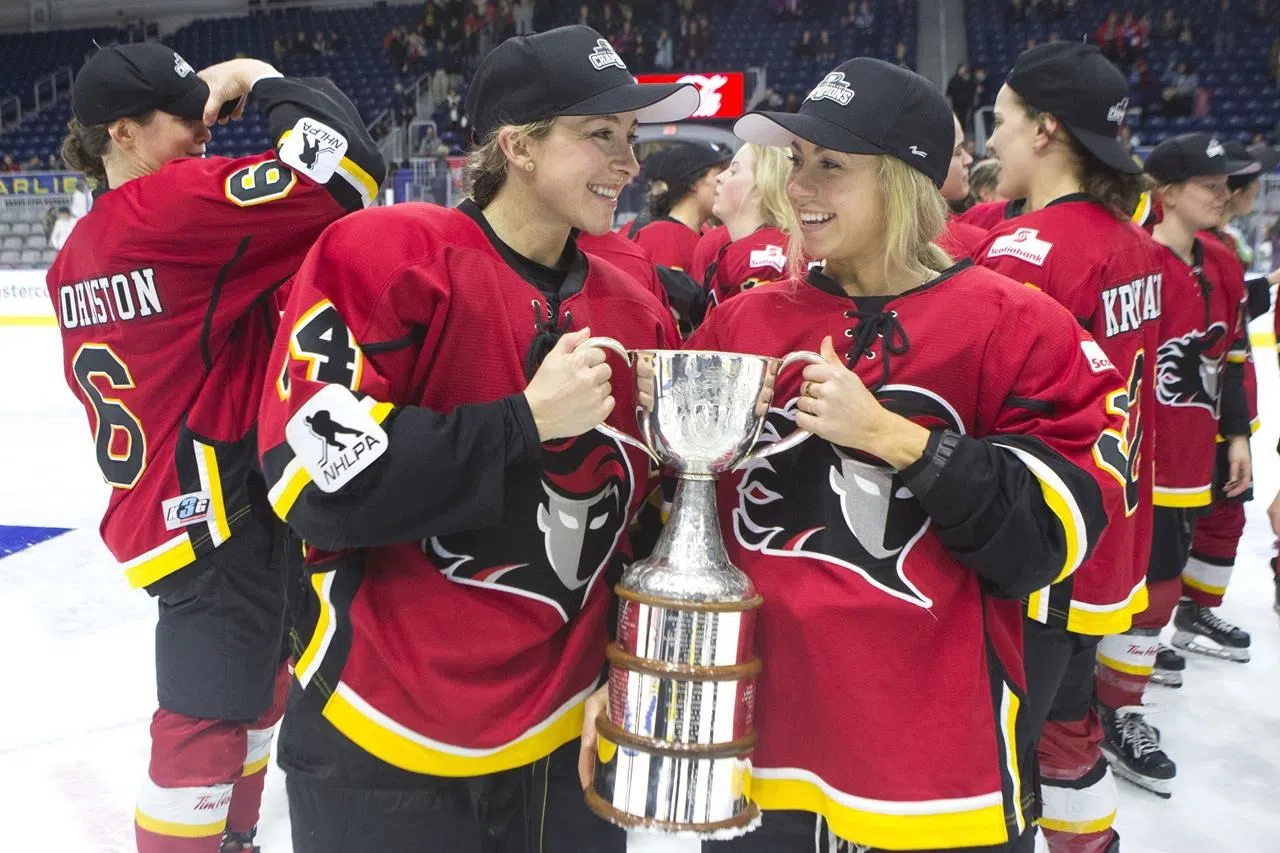
NHL, Toronto Maple Leafs and Calgary Flames help settle debt of defunct CWHL
The NHL, Toronto Maple Leafs and Calgary Flames are among contributors helping the defunct Canadian Women’s Hockey League settle its debts.
The Ontario Women’s Hockey Association, Hockey Canada and other private donations also helped the CWHL clear its books.
“The CWHL is in the process of paying everyone and will be able to close in an orderly fashion,” CWHL board chair Laurel Walzak said Tuesday in a letter that called the donations “large and critical.”
The letter wrote on behalf of the CWHL board detailed the demise of the league and what a women’s hockey league requires to survive.
